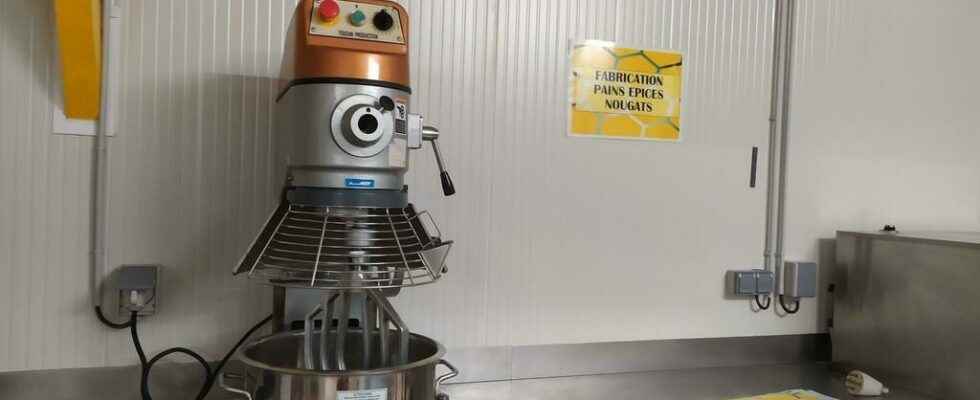While the Ministry of Ecology has just launched a pollinator plan intended to protect biodiversity, beekeepers are afraid for their bees. Because between the provisional authorizations of neonicotinoids and other treatments, phytosanitary products used in intensive agriculture continue to kill insects, pollinators or not. Meeting with beekeepers from the Nantes region.
Bee-killing pesticides
In France, until 1994, beekeepers were already confronted with aerial pesticides, but when neonicotinoids, neurotoxic pesticides, arrived, sold under the names of Gaucho, Cruiser and Regent in particular, by the agrochemical giants, they have caused death in bees and other pollinators. Used on sunflowers, rapeseed and corn, they led to the collapse of beehives and the loss of honey production, then the ruin of beekeepers, some of whom were even driven to suicide.
A cascade of legal battles ensued between beekeepers, government departments and manufacturers to prove the toxicity of the products, battles that resulted in a succession of bans and re-authorizations. In front of beekeepers, conventional farmers, who work on large areas in monoculture, have made resistance despite the toxicity of the products, because these insecticides are practical: they avoid other treatments during the season.
Massive contamination
Neonicotinoids, most often chlorinated or sulfur derivatives – Imidacloprid, Thiamethoxam, Clothianidin – are systemic insecticides, that is to say that once applied to the seed, they spread throughout the plant, going to the flowers, then into the nectar, and they remain active throughout the cycle of the plant.
When bees forage, they become poisoned and neonicotinoids destroy their nervous system. They have sub-lethal effects on bees, that is, they do not kill them directly, but paralyze and disorient them to the point that they can no longer return to the hive.
These insecticides are also implicated in the disappearance of field birds which eat poisoned insects. In addition, they degrade slowly, diffuse in soils, contaminating waterways and can fly off as dust to other flowers.
Ultimately, the entire food chain is affected: a study by the NGO Générations Futures in October 2020 showed that 10.7% of French plant foods contain neonicotinoids.
Poor beekeepers
Loïc Leray, beekeeper and president of the Center d’Étude Technique Apicole de Loire-Atlantique, is very worried: five neonicotinoids had been banned due to their toxicity in 2018, but in 2020, beet growers obtained an emergency exemption to fight the green aphid in 17 European countries including France, an authorization which has just been approved by the European Commission.
Beekeepers admit that they are helpless in the face of this threat: “ Apart from fleeing the areas of large crops and moving the hives, nothing can be done, but it’s a lottery, because the coated or treated plots are not identified and the bees go up to 5 or 6 km from the hive »Assures Loïc Leray.
Since the bans, the hives have been repopulated, but the beekeeper who had lost the majority of his bees does not want to relive that: “ It’s traumatic, imagine a farmer who arrives and sees 60% of his dead animals: this is what you feel when you arrive in front of an intoxicated apiary “.
For Antoine Caron, scientific advisor of the National Union of French Beekeeping, the risk is that the exemptions will continue: “The search for replacement products was not done seriously (…) today it is beet and tomorrow another crop “.
An insufficient pollinator plan
In addition to neonicotinoids, other insecticides, herbicides and fungicides threaten pollinating insects.
With the aim of restoring biodiversity, the French government has just launched its 2021-2026 Pollinator Plan, notably asking for a reassessment of phytosanitary products. The Ministry of Agriculture has published in the Official newspaper November 20, with entry into force on 1er January 2022, a “bees” decree: if a treatment is authorized during flowering, it must be carried out in the two hours preceding sunset, and the three hours following it.
But this is insufficient in the eyes of beekeepers: ” Two hours before sunset our bees are still in action, at 9 p.m., they are still working and they are sprayed in the fields », Replies Loïc Leray,« in addition, our little bees help pollination, they help farmers “.
And he concludes: ” If the beekeepers stop, it is the disappearance of the bees and afterwards, it is the total collapse, we do not realize the service rendered by the pollinators (…) what made us stick, it is this fabulous bee society, we have to keep them alive, it’s very difficult, but I’m fighting for the future; if our children continue to eat fruits and vegetables, it will be thanks to the effort we are making today “.
scope.counterText
scope.legend
© scope.credits
scope.counterText
scope.legend
© scope.credits
Find out more:
The National Union of French Beekeepers – UNAF
Loire Atlantique Beekeeping Technical Study Center – CETA 44
Future Generations – Investigation of neonicotinoids
Order of 20 November 2021 relating to the protection of bees
